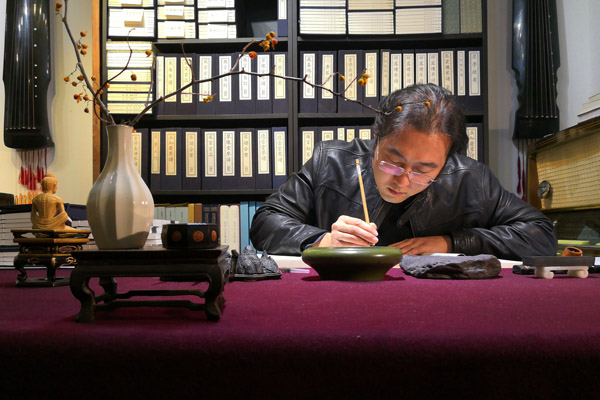 |
|
For Sui Yiyang, guqin is more than a musical instrument, and it's full of history and knowledge.[PHOTO BY WANG JING/CHINA DAILY] |
Sui travels nationwide and even abroad to buy high-quality materials and tools. The money he makes just covers his rent and the cost of materials for future orders, he says.
Wood is crucial in making the instrument. He travels to places in southern China such as Fujian and Jiangxi provinces to buy wood. Once the wood arrives in Beijing, two thirds of it has to be discarded because it is no longer suitable as a result of the change in temperature and humidity, he says.
He also travels to Rentoushan, a village of Maoba township in Lichuan city, Hubei province, to buy raw lacquer, which is used to protect the guqin from corrosion. To get to the village he has to walk about 10 kilometers because the village has no road connections.
The local farmers collect raw lacquer from lacquer trees based on China's 24 solar terms. From xiazhi, or summer solstice, to hanlu, or cold dew, only about 120 days are suitable for collecting the lacquer.
"Young people don't want to stay in the village to collect raw lacquer because there's no money in it," Sui says. "The youngest raw lacquer farmer from that village is more than 60 years old and the oldest is nearly 90 years old."
In traveling to Rongchang district in Chongqing to buy xiabu (a type of Chinese linen that Chinese wore in summer in ancient times), he has found that only elderly people adhere to the traditional techniques of making xiabu. Xiabu is also used to protect guqin. Covering it with xiabu prevents the instrument from cracking.
"Guqin-making requires patience and maintaining commitment to high quality because all the materials determine the sound of the musical instrument," Sui says.